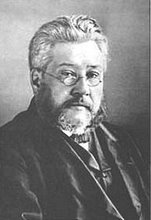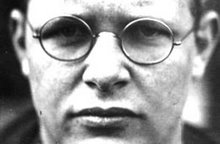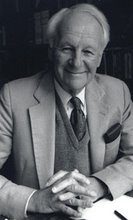Guest Blogger: Cori
 Cori, you live in South Africa, a country with many differences: socially, demographically, religiously.
Cori, you live in South Africa, a country with many differences: socially, demographically, religiously.
Please comment: "Sometimes you must agree to disagree".
Someone once said to me that we always get excited when someone is the same as us (“Wow – we have the same favourite food/colour/etc!”) but that true richness comes from being different and learning to embrace that difference. I love the richness of my country, and rather than being threatened by that, try to gain from it and embrace it as much as I can. I also believe that in South Africa we have learnt a lot about how to handle diversity without conflict. A number of western countries have historically been homogenous and now have to deal with other cultural and religious groups and the conflict is intense (could we include the Netherlands and the UK here?). I don’t think it’s as much about agreeing and disagreeing about something as learning about, embracing and appreciating diversity.
The Good Shepherd went out to find the lost sheep, the sheep did nothing to be rescued. But the prodigal son came back home on his own initiative. Saul (before his name became Paul) wasn't looking to be saved by Jesus, on the contrary - he was actively persecuting Christians at that time. This is my question: what do you think, are we looking for God or is God looking for us?
Perhaps both is happening at the same time! I’m a little hesitant to speak of the cliché of the ‘God-shaped vacuum in all our hearts’ but on the other hand do believe that everyone is looking for meaning, beauty, truth, love, purpose, a more abundant life and all of these in a way are a searching for God. But more than that, I believe God is truly ’wooing’ every single person to him. Somewhere in Acts 17 it says that God is not far from any one of us.
In this post-modern time it is not acceptable to proclaim 'the truth'. But as Christians we are called to share the Gospel with all people from all backgrounds. How do you deal with this tension?
It depends what we mean by ‘truth’. If truth is a dogmatic statement of belief then I’m as happy to drop it as the postmoderns supposedly are. But if truth is relational and dynamic, and if truth is more about a person, and about love, then it is something I am sharing all the time, every time I interact with another human being meaningfully. If truth is limited to knowledge it is a very sorry thing. If it has more to do with experience, and with who we are and what we live out, it is very rich and deep.
You know more about the African continent than most people mentioned in my blog roll. Could you please tell us some things that we really need to know about Africa? (This is your chance to correct misconceptions and to enlighten us with your first hand knowledge and experience!)
It’s hard to talk about an entire continent. I know almost nothing about any country north of the DRC. But in general terms, Africa is an extremely resourceful continent. I love what a lot of celebrities are doing to bring attention to this continent. But it’s not a continent that needs handouts. It needs fair trade and it needs to be treated justly in its political and economic relations with the West. And it doesn’t need all the arms, and cheap medicine, and other dud stuff (like faulty condoms) the West is selling it to get rich at the cost of hundreds of thousands of lives. But this is an incredibly diverse, rich beautiful and resourceful continent. It is also a whole lot safer to travel here than people imagine. And very affordable. Anyone interested in visiting an African country? I’m part of several networks and can probably link you to a local in several places for a very authentic experience!
Feel free to ask yourself any question that needs to be answered here...
Hmmm…. How can we more effectively bridge the gap between people who have been churched all their lives and know little of life outside of their Christian church reality and those that are leaving the church (although not necessarily Christianity) and those that aren’t Christian at all? Because I have the most to do with the last two categories, I guess my question is mainly aimed at those in the first category – how can we open a dialogue between the very-churched and the not-so-churched?
Dear blog readers - feel free to share your thoughts with us in the comments section of this post. Maybe you have an answer to Cori's question about the dialogue between the very-churched and the not-so-churched....
Cori, thanks for being such a good blog friend and for sharing your thoughts with all of us! Cori gave me the name of the next Guest Blogger from my blog roll that I will invite: P3T3RK3Y5 (just try to pronounce that! I will ask him soon!)





.jpg)



























32 comments:
Interesting post. I understand your concern about “the truth”. If we like it or not propositional statements on truth are key to the Christian faith. When Jesus was questioned by Pilate the following dialog took place.
“"You are a king, then!" said Pilate. Jesus answered, "You are right in saying I am a king. In fact, for this reason I was born, and for this I came into the world, to testify to the truth. Everyone on the side of truth listens to me." John 18:37
Jesus was testifying to the truth that he is KING. Pilate responded in the way many do today with, “what is truth” John 18:38.
It is out of fashion to make dogmatic statements. But to be a disciple of Jesus we have to make them, and stand by them. An interesting study is to look up the times Jesus used the phrase “I tell you the truth”. It is amazing to see just how many dogmatic statements Christ made. I supposed the ultimate statement is
“"I am the way and the truth and the life. No one comes to the Father except through me.” John 14:6
I really enjoyed reading this post!
Cori,
I too must take up the banner of "Truth". There are simply some things that are true and to say otherwise is to enter the realm of foolishness. Even those who decry the existence of any knowable "Truth" live their lives everyday in line with it. For example, not many people walk off cliffs because they know gravity will have its way. Likewise people tend to put sugar rather than salt in their tea or coffee because the truth is sugar tastes better. You see my point. In similar fashion there are Truths about God that we can know - propositional in nature but always relational in practice (please note the structure of the apostle Paul's New Testament letters, truths followed by application).
I am also a bit mystified by this great exodus from the church. Can you help me here? In reading your (and other's blogs) I am led to believe this is the fashionable thing to do. Alas, I am, once again, terribly out of fashion. The Bride of Christ certainly has some stains on the wedding gown and there is some serious re-constructive surgery that needs to be done in places but she is still His bride. Why leave when it is the church He loves?
Though I don't comment there often (only so much time in a day) I do enjoy stopping by your blog from time to time.
Blessings!
John
Thanks for these responses to my guest post, and to Paul for hosting me here!
This issue of truth is a difficult one. In neither of Mike or John's comments did I get a clear sense of how you define the word 'truth'. Without a clearer sense of this definition it is difficult to understand how you are wanting to use the quoted Scriptures.
My definition of truth, according to my understanding of the the relationship between first God and Israel and then Jesus and his bride/the church, is still relational, and with this in mind, the quoted Scriptures may be read from a slightly different angle.
John, I'm a huge fan of the church and very involved in my local Baptist church. I'm with you on that! Nevertheless, worldwide, many are leaving the church and we need to ask ourselves, what is our response as the church going to be? I think that that may clarify my question - what is our response going to be as those in the church?
Cori,
Thanks for your comments.
I thought I defined truth reasonably well. Pilate living in a pluralistic society (Greek/Roman world) was surrounded by many ideas of truth. He expressed that in John 18. As Solomon said “there is nothing new under the Sun”, Pilate is very much a postmodern.
Jesus gave Pilate a dogmatic statement, he is King. Binary logic dictates that this statement is either true or false. Jesus is a King or is not. Jesus also states that he is “the Truth”. This statement has some profound implications. Jesus being GOD, when he says something it is true.
Jesus when confronted by the devil quotes scripture three times, “it is written”. Jesus used scripture as the final authority for life. It is in fashion to say “truth is relational”, but Jesus never spoke like that. Truth was for Him a set of very clear statements. Why is that? You can have a relationship with the powers of darkness, but that does not mean it is TRUTH.
You are right about people leaving the Church, I am one of them. I once was a Pastor and have been involved in ministry in at many levels. The last church I was a part of was over 5000 people. It was in this environment that a few of us looked around and said “is this really what the bible says church should be”. We looked at the New Testament model of Church and then what we were experiencing and they just didn’t match up. The church seemed so much like the world we didn’t see much of a difference. So we left and formed a Christian community that is built on the New Testament model of church. I am not against “churches”, far from it, but the truth pushed us in a different direction. I don’t think people are leaving churches because of truth, they are leaving because truth is no longer proclaimed.
I am finding more and more unchurched people long for the truth of Christ, while Christians are denying truth to appeal to non-believers. A strange world.
I enjoyed you comments and have visited your blog.
I, too, enjoyed reading Cori's comments and it is nice to find a new blog.
John and Mike, I will not take up the issue of truth except to add that as I read the Bible truth is a person....Jesus.....not a proposition.
On the issue of people leaving the church I can only comment from the perspective of North America. Leaving the church means leaving the institutional expression of church. Many like Mike are not leaving the church, ekklesia, but only the institutional expression of it. For many, ekklesia and the institution are one and the same, meaning there is nothing other than that form. But many are questioning whether the institutional expression actually reflects what Jesus intended. Some of the issues are the divide between clergy and laity, programs that do not encourage and build relationships with Father or others, use of secular techniques to attract people to a building instead of being out in the community, the use of programs to build up the institution so it can survive.
For many leaving the institution is an effort to find a more authentic expression of the ekklesia. Mike, I am not sure there is one biblical model for church but the Modernist/Enlightenment form of institution is most probably not the most healthy form.
Traveller,
Good words. I agree with you regarding the church. For us I use the term "biblical" to discribe our efforts to copy what the bible says on this subject.
This is an exciting time with many exploring alternative forms of Church.
Traveller,
Indeed, truth is a person, but there are also propositional truths about that person that must be affirmed in order for us to know him. For instance, I am John (propositional truth confirmed by my driver's license, birth certificate, and those who know and love me (eyewitnesses)), I have three children (propositional truth affirmed by the US government), I pastor a church (propositional truth affirmed by simply contacting the church office here). These truths are necessary to rightly identify which "John" is being discussed. Likewise there are certain propositional truths that we must affirm about Jesus in order to rightly ascertain which "Jesus" we are discussing and/or engaging in relationship. There is no shortage of "different" Jesus' out there. In fact it was this issue of propositional truth that engaged the early church's discussion - do we just throw it out and trust our feelings instead?
As I recall, both head and heart are to be engaged in our relationship with God.
I resonate well with the distaste for what you call the institutional church (I call it corporate church) and am blessed to be part of a lively church with a legacy (Established in the 1890's). I stepped away from the hustle and rush of suburban church growth to pursue the task of intimately and sacrificially pastoring a church. It is a joy to watch God at work in the lives of His people.
Blessings on your journey.
Cori,
A simple definition of Truth which I find helpful is, "That which is true for all people, in all places, at all times = Truth." For example, all people, in all places, at all times will die without nourishment. Hope this helps.
John
John,
Is your understanding of Jesus (Truth) different today than it was when you first met him?
What a great conversation. Here is a definition of truth that I like,
"truth is that which is consistent with the mind, will, character, glory and being of GOD"
Traveller,
Absolutely! Not surprising in the least. You and I have only just met and while there are certainly things that are true about each of us it will take some time to discover and learn about the wonder that each of us are as a creation of God. The fact that we are only just beginning our relationship in no way changes who we are.
Likewise, there is much I do not know about Christ, however there are certain things I can confidently affirm about Him - "In the beginning was the Word. The Word was with God and the Word was God. He was with God in the beginning. All things were made through Him and nothing was made without him. In Him was life and that life was the light of man." (John 1:1-3). This is true. I can bank on this truth. It helps me know with whom I am dealing.
How do you relate to one whom you know nothing about?
Enjoying the conversation that has sprung up here. Thanks for engaging with civility.
There is a similar conversation taking place at the Shepherds Staff.
http://thyrodandstaff.blogspot.com/
Mike, we may have to agree to disagree on this. However, I do not think that Jesus or people are a set of propositions. Jesus is a being that is known through relationship with him just as I am known by relationship with me. To state propositions about me does not reveal who I am. Beings were created to be known in relation to one another. We bear the image of God in order to be known by him and to know him, even though we see now through a glass darkly.
There is only one Jesus. Because we are at different stages of our relationship with him we may see him differently and know him in lesser or greater ways, but this does not mean there are multiple Jesus beings.
Thinking of Jesus as a proposition is a fallacy of Modernity/Enlightenment thinking which has its roots in ancient pagan thinking. If we can reduce our god to a set of propositions/rules then we can control and manipulate the god for our benefit. Relationship, which is born and nurtured in love, is not propositional.
It is not the propositions that "save" us but it is the actual relationship with the living God, who himself is truth.
Thanks for the vigorous discussion. I understand and appreciate your viewpoint.
My apologies, I should have addressed the last post to John.
Traveller,
Thanks for engaging on this. I am genuinely interested in this notion of belief without an affirmation or assent to certain truths. Interested because I do not understand.
I find it interesting that in your reply you utilize some statements that I would characterize as "truth" statements (i.e. "There is only one Jesus." or "Jesus is a being that is know through relationship"). These are things you hold to be true about Him.
I agree wholeheartedly that our salvation is found in relationship with the person and not the facts about the person of Jesus, (The difference in knowing about Him and KNOWING Him.) but to reject the truth ;-) that there are propositional/factual things we can know about Him is, IMHO, foolish (and perhaps dangerous). I feel certain you would affirm that Jesus is the Son of God. A propositional truth that simply helps me know with whom I am dealing.
Dr. Fisher Humphreys, a baptist theologian, said this "It is true that we cannot capture God in our words. The purpose of speaking about God is not to capture him but to point to him. Words are not like boxes into which we put thing; they are like arrow we send toward a target. The may not go nearly as far as the target, but they can send us in the right direction." This sums up my understanding of the role propositional truth plays. It does not get me there - it only sends me in the right direction.
I assure you, I have no confidence in my ability to say the right things about Jesus to save me. I am glad to know I will not be among those of whom he says, "Depart from me, I never knew you."
I would love to continue this discussion as it is very helpful to me. If you would like to carry it on privately feel free to use my email - jwnicholsonjr AT hotmail.com
Traveller,
One additional comment. Jesus famously stated, "I am the way, the truth, and the life, and no one comes to the Father except through me." John 14:6. Is this true? I think yes. What he is telling me is a propositional truth "I am the truth" which leads me to rightly relate to Him.
Blessings!
John
Ladies and Gentlemen,
This is an interesting conversation. Cori, I would be interested in your views.
Care to share?
John,
I think the issue is not whether there is truth or not. The issue is do we rely on propositional truth instead of with the living God himself. Following the Enlightenment, in the West, we tended to take the position that by believing the propositions we could find or be in relationship with God. Believing propositional truths, or as we tend to call it, doctrine, is not the deciding factor in whether we are in relationship with God. It is our reliance on the person of God himself. Do we need to have an elemental understanding of the nature of God? Yes, we do. But the reality is that we can have many propositional truths wrong and still be in relation with God. In Modernity the church essentially has been co-opted by a rationalistic form of thinking that says if we believe and do the right things then that is a relationship with God. To put it a different way, if we conform outwardly to certain "truths" we will be transformed into the image of Christ, when God's way is to transform the inner person through the power of the Holy Spirit, which leads to changes in outward behavior.
I would suggest no matter how correct you think your doctrine is, by definition, it is wrong in some respects. So, does that mean you are not a follower of Jesus? No, of course not. It just means you do not yet fully understand God.....yet.
Since you have invited a private conversation I will email you some books that might be of interest to you as you try to understand some of this thinking. I do not believe that so-called emergent followers of Jesus are saying there is no propositional truth. They are saying we have made the mistake of relying on propositions instead of the true and living God. Do not confuse those followers of Jesus who are Postmodern with secular Postmodernism. They are two different sets of folks.
My stars, this has become an interesting conversation. Thanks, Paul, for inviting Cori to state her views. Cori, having been raised in the Baptist church (I sat with my grandfather in worship services and my great-great-grandfather was a Baptist deacon), I really appreciate your question about the non-churched. I struggle with that myself, living in the Bible belt of the US. Frankly, I haven't many interests outside of the realm of Christianity. I am a religion professor at a Baptist university with few hobbies outside church and work. I am insular without intending to be so. I don't even like American football. So I have to make the effort to find a connecting point. That's what is so hard for the lifelong Christians--making the effort to understand what it must be like on the outside.
Traveller,
Good points and I think we are in agreement (largely) just coming at this issue from different places. My conviction is that only through a personal relationship with Jesus can a person be saved. My concern is with the jettisoning of propositional truth as useful in our relationship. This mindset can quickly lead to self-deception.
If "Jesus" is anything I happen to believe Him to be then I can dress Him up in a Buddhist priest's robe and say this is the way the truth and the life and no one comes to the Father except through this Him. If I am unwilling to affirm some propositional truths about the person and work of Jesus then I may be placing my faith in something completely other than Jesus.
Let me put it this way...Suppose you were a man of indisputable honesty. In all the personal dealings I have ever had with you there was a high level of integrity. Your honesty had been often and repeatedly documented in some public forum. Perhaps you even received a prestigious award for your honesty. It would seem that, propositionally speaking, you are an honest man. What if a stranger came along and began stating that Traveller is NOT an honest man. I could choose to believe him OR I could point out the propositional truth that has piled up about Traveller's honesty. The propositional truths tell us something about you.
Enjoying the conversation.
BTW - Thanks Paul for letting us highjack your blog for this discussion!
Blessings! John
Hey guys, be my guest! ;-)
I didn't join the discussion, but I did enjoy it. Seems like inviting a guest blogger is a good idea...
John,
Allow me to use your example in a different way. You might be able to make a propositional statement of "truth" about me but it would be based on your experience and relationship with me, not the propositional statement of "truth". Indeed, it is possible you could make a propositional statement of "truth" about me that might be incorrect.
Many "emerging" (Emergent is a name that is use by a specific group that includes Brian MacLaren, Doug Padgitt and others) folks would say that in a Postmodern context in which people do not accept propositional truth it is better for them to see the "truth" in the lives of followers of Jesus instead of trying to convince them with propositional truths. While they may still reject Jesus they cannot deny the authenticity if the truth is demonstrated in the lives of those who do follow Jesus. This leads to at least as much emphasis on orthopraxy, if not more, than orthodoxy.
By the way, Little David, my heritage is Baptist as well. My paternal ancestors came from Germany to North America in the late 17th century in order to avoid persecution for their anabaptist beliefs. While I am a product of that heritage and find much of it valuable, Baptists and all institutional denominations in Europe and North America are out of touch with our society. My personal belief is that "emerging" folks as well as others are at the forefront of a reformation as significant as the one 500 years ago. The "church" as we know it today will likely disappear in a few decades with the church looking totally different. These are fascinating times.
Paul, my thanks for the space as well. I will come by often
Sjoe, this has become an interesting discussion. I think Traveller has articulated my view on the discussion around 'truth' better than I could! Thank you also to everyone for being so kind with each other even though not seeing everything the same way!
I sometimes find that at the heart of it, as John suggests, we're believing the same thing but that we have different language to describe that. Both John and Traveller believe that Jesus is truth but both have different paradigms leading to different use of language to describe what that means.
I sometimes feel that it can be quite powerful in an instance like this one (if time and energy allows!), for people to describe more of their journeys. Where have they come from to lead them to a particular way of describing and defining their beliefs?
For example, in my case, I have come from a place where the idea of propositional truths have been abused and used against me. Well-wishing Christians have reduced complex suffering in my life to simple propositional truths (eg: God works all things for the good - which is a Biblical truth that is, indeed, true! But if stated in the wrong context and at the wrong time can be quite damaging!).
This resulting in tremendous hurt,anger and alienation on my part from the very source of those propositional truths - Jesus. My journey back to 'truth' came thought being invited to take a bit of distance from these truth statements and encounter Jesus himself.
This is not to say that the propositional statements of who Jesus is are not important, but for a period in my journey I experienced such relief in being able to explore the question: Who is Jesus to me - subjectively, experientially, emotionally, as I discover him in my life journey.
There are also times when I measure up this subjective experience of Jesus with my community of believers, with the Word, with books and studies. But what certainly saved my faith was just being able to leave all those propositional statements and just sit before Jesus, almost just for that moment leaving aside all knowledge and information, and just encounter Jesus on a completely heart level, with Jesus asking me, as he asked Peter and John, "who do you say that I am?".
Does that make any sense?
I also wanted to add (after my very long previous comment!) that I was very excited by the comments around leaving the insitutional church but not church as such. I think that's an important distinction and I am very excitd about some new and creative things that are arising out of those that are leaving the establishment.
What's been a challenge for me is not to develop a 'them' and 'us' mentality. Even though I am in the established church (Baptist) I still find myself sometimes thinking that new forms of church are more 'true'. Keeping in mind the long history of the church, and that God has been at work throughout that history (through its ups and downs) keeps me humble and reminds me that new expressions of church are going to become part of that (up-and-down) story of the journey of God's bride that others are perhaps going to critique in future years!
Could it be that we are talking about two wings of an airplane here? Take away either one and you're not going to fly very far.
Traveller, thanks again for engaging here. I will readily confess that I have serious misgivings about throwing propositional truth out the window of Christian experience. In fact, I have difficulty believing that you came to faith in Jesus in any other way. I feel quite certain that someone, somewhere shared some propositional truths about Jesus with you and you checked it out for yourself and found Him (the person) to be exactly as advertised - and more!
I will also readily affirm that there is a crying and desperate need for a renewal/revival of relationship with Jesus. There is far too much talk about Him and not enough with Him. Thank you, and those who are walking with you, for this refreshing of the passion of the church. I assure you, my passion is not for some dead orthodoxy. Rather I pursue a living and lively relationship with the Lord of all. After all "Faith without works is dead" or to state it in terms of our conversation, "Orthodoxy without orthopraxy is dead." Could it be that this in nothing new in the church? Is it possible that the saints who've gone before us have wrestled these same beasts?
Cori, I hear you loud and clear. I encounter all kinds of people for whom the church has been a place of hurting rather than healing. All too often the people of God have bludgeoned rather than beckoned people with truth. To paraphrase Paul, "Though I may know the truth and have not love, I am nothing."
One question for the future and I will close my mouth...what happens when the emergent church inevitably becomes institutional?
This is a great convesation. Cori thanks for sharing. I too can relate to your experience. To John's point, maybe we are talking about "two wings of the same plane".
As disciples we are to live in love. Caring for each other comes from the "truths" that we find in scripture. That's what I have enjoyed. We see things a little differnt but love each other anyway.
I am fully in support of loving all forms of Church. GOD is moving and there are many fresh expressions of community appearing. This is an exciting time.
John,
I am not suggesting propositional truth be "thrown out the window". However, I do think that to begin one's relationship with God requires very limited propositional truth. I think this may be our major difference of view. By limited I mean an elemental understanding of the Trinity, and Jesus, in particular.
I think your last question is an interesting one. However, my experience indicates the vast majority of "emerging" folks are institutional already. They never left the institution. Their efforts are to reform the existing institution. The leaders of Emergent and many of the "emerging" writers are in an institutional expression of church. Indeed, many are paid pastors in that insitutional setting.
Nevertheless, there is a different strain of folks who may agree with much of the orthopraxy/orthodoxy thoughts of "emerging" people but are in what some call "simple churches". These are very small groups of people who do not have clergy/ministers, no programs, no buildings, or other trappings of the institutional church. According to George Barna's surveys this group is growing exponentially in North America even though most people do not see it because they are by definition low profile. The question is will these simple expressions inevitably take on the form of an institution? The answer to this question is unknown at this time. In case you have not already guessed, I am hopeful that institutionalization will not happen....but then I am an optimist.
Cori, thank you for sharing futher your experience and thoughts. They are helpful. I really like your brief comment about leaving the institution but not the church. Like you, I think this is a very important distinction. To most folks these are synonymous terms. However, the institutional expression of church did not exist, until the 4th century when Constantine began to heavily influence the form of the church. Just because many people are leaving the institution does not mean they are leaving the "ekklesia". It only means they are looking for a different expression of the "ekklesia" than that of the institution.
And, as you say, it is important to realize that we are in a significant transition period which means there are going to be multiple expressions of the "ekklesia". It is important to love and remain in fellowship with those who look at it differently. It is not "us" and "them". Very good thought. Important that our orthopraxy on this issue be like our orthodoxy. :-)
Mike, I agree that this is a very exciting time to watch God at work in our midst.
Traveller,
Amen. This is a time of great transition. As someone who started off in the Church of England, then became a Baptist and now find myself in the "simple church setting", I have witnessed a few things. It remains to be seen if those in "simple church" will morph into the institution. Time will tell.
What is very exciting is to see that there are many in the western world who are hungry for Christ. These people are willing to break with norms to express that desire.
Then there are those in "regular church" who are changing the church.
I now live in Minneapolis. Last year churches started renting a bandstand in a major park for Sunday services. All sorts of people who were not part of a church started stopping by to have church. At this time I couldn't help but think, "is this the norm for the future".
Traveller,
I don't think it is a point of difference at all. In fact, when I have the privilege of sharing Christ with someone and accompanying them to the point of salvation, about all I ask is, "Do you believe Jesus died for your sin?" and "Do you believe Jesus rose from the grave on the third day?"
I agree that the propositions necessary are few. I've thoroughly enjoyed this exchange and look forward to others like it along the way.
John,
This may seem a bit off topic but do you think that a person can be a follower of Jesus without actually articulating an answer to the questions you ask them? In other words, is being "saved" an event that occurs at a point in time just by agreeing to propositions of fact/truth? Or, is "salvation" more than that? Or, something different if not more?
Check today's posting (15 Feb.) for my answer to that question, Traveller! Blessings
Post a Comment